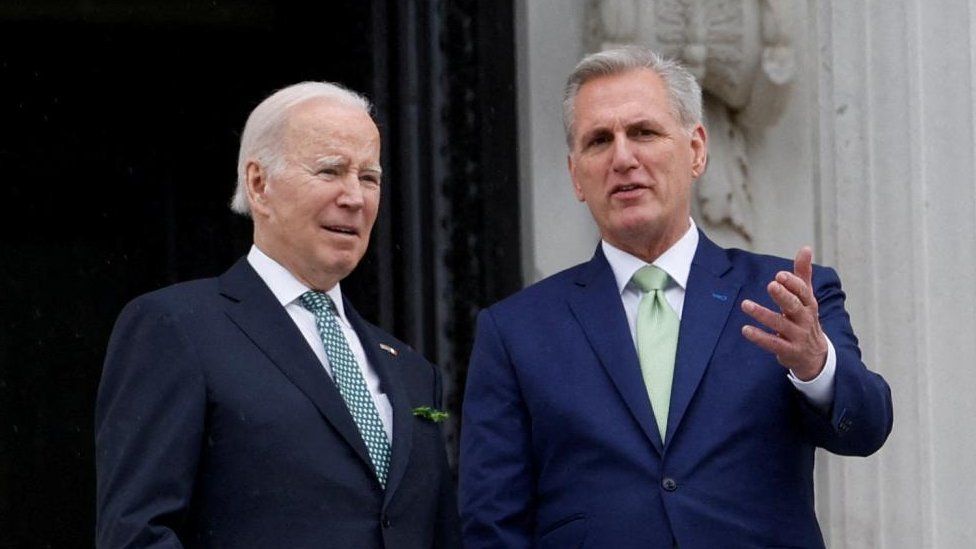ARTICLE AD BOX
 Image source, Reuters
Image source, Reuters
US President Joe Biden says a bipartisan deal to raise the US debt ceiling and avert a default is ready to move to Congress.
He said on Sunday that the deal was a "compromise", while Republican House Speaker Kevin McCarthy earlier called it "worthy of the American people".
They must now convince members of Congress to approve it.
The deal is the result of long and bitter negotiations between Democrats and Republicans.
The Treasury had warned the US will run out of money on 5 June without a deal.
The US must borrow money to fund the government because it spends more than it raises in taxes.
Republicans have been seeking spending cuts in areas such as education and other social programmes in exchange for raising the $31.4tn (£25tn) debt limit.
Late on Saturday, news came of a tentative deal - but it took until Sunday for negotiations to continue and the agreement to be finalised.
Mr Biden did not give full details of the deal but said he had not made too many concessions.
He urged lawmakers to pass the deal.
A US default would upend the US economy and disrupt global markets.
In the US, the immediate effect would be that the government would quickly run out of funds to pay for welfare benefits and other support programmes, for instance.
Over a long period, the crisis would tip the US economy into recession - and this would result in unemployment rising.
A US recession would have big knock-on effects for many countries around the world, for which the US is a key trading partner - they would not be able to sell to an economy that does not buy as much.
And because the US dollar is the reserve currency of the world, a default would send panic across the world, eventually leading to prices of many commodities rising.

 1 year ago
13
1 year ago
13








 English (US)
English (US)